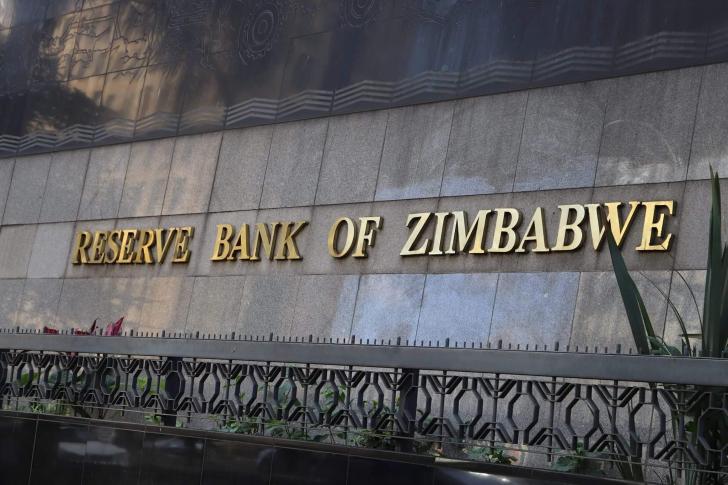News / National
RBZ to swoop on currency hoarders
02 Apr 2025 at 07:47hrs |
0 Views

The Reserve Bank of Zimbabwe (RBZ) is set to crack down on businesses and individuals hoarding money in cash deposit boxes at banks, homes, and business premises. Authorities are concerned that such practices result in idle funds, depriving the economy of much-needed liquidity for transactions.
RBZ Governor Dr. John Mushayavanhu, in his 2025 Monetary Policy Statement announced in February, described cash hoarding as financial disintermediation. He said this practice stifles economic growth by limiting the availability of funds for productive economic activities.
Some manufacturers, he noted, supply goods to the informal market but fail to bank the proceeds, instead keeping large sums of money in cash deposit boxes, which is a violation of the Anti-Money Laundering Act.
To address this, the Financial Intelligence Unit (FIU) of the RBZ will take action to curb the malpractice. FIU director-general Mr. Oliver Chiperesa confirmed that a regulatory framework is being developed to ensure the upcoming enforcement operations are conducted within legal parameters.
"You may recall that during his 2025 Monetary Policy Statement, the RBZ Governor mentioned that businesses and individuals, particularly manufacturers and informal retailers, were hoarding millions of dollars in cash deposit boxes. This deprives the economy of critical liquidity," said Mr. Chiperesa.
He emphasized that cash deposit boxes should primarily be used for storing important documents rather than large sums of money. "The current trend of storing excessive cash outside the banking system is illegal under the Anti-Money Laundering Act," he added.
The FIU has recently expanded its operations, opening offices in Bulawayo to strengthen financial oversight and support the stability of the Zimbabwe Gold (ZiG) currency. Despite market stability, the ongoing issue of cash hoarding presents a significant challenge to financial security.
Dr. Mushayavanhu has also pointed out that the stability of the ZiG currency has increased market confidence, leading to a rise in local currency transactions. These include fuel sales, as businesses and consumers increasingly accept ZiG as a reliable store of value and medium of exchange.
To encourage savings and banking confidence, the RBZ has introduced higher interest rates on savings accounts. This policy has already led to an increase in local currency deposits held by banks, rising from less than 10 percent before the introduction of ZiG to approximately 15 percent currently.
Additionally, the RBZ mandates that 50 percent of quarterly payment dates (QPDs) by corporations be settled in local currency, further promoting the use and stability of ZiG. Authorities believe these measures, along with the crackdown on cash hoarding, will enhance financial system efficiency and support Zimbabwe's economic growth objectives.
RBZ Governor Dr. John Mushayavanhu, in his 2025 Monetary Policy Statement announced in February, described cash hoarding as financial disintermediation. He said this practice stifles economic growth by limiting the availability of funds for productive economic activities.
Some manufacturers, he noted, supply goods to the informal market but fail to bank the proceeds, instead keeping large sums of money in cash deposit boxes, which is a violation of the Anti-Money Laundering Act.
To address this, the Financial Intelligence Unit (FIU) of the RBZ will take action to curb the malpractice. FIU director-general Mr. Oliver Chiperesa confirmed that a regulatory framework is being developed to ensure the upcoming enforcement operations are conducted within legal parameters.
"You may recall that during his 2025 Monetary Policy Statement, the RBZ Governor mentioned that businesses and individuals, particularly manufacturers and informal retailers, were hoarding millions of dollars in cash deposit boxes. This deprives the economy of critical liquidity," said Mr. Chiperesa.
He emphasized that cash deposit boxes should primarily be used for storing important documents rather than large sums of money. "The current trend of storing excessive cash outside the banking system is illegal under the Anti-Money Laundering Act," he added.
The FIU has recently expanded its operations, opening offices in Bulawayo to strengthen financial oversight and support the stability of the Zimbabwe Gold (ZiG) currency. Despite market stability, the ongoing issue of cash hoarding presents a significant challenge to financial security.
Dr. Mushayavanhu has also pointed out that the stability of the ZiG currency has increased market confidence, leading to a rise in local currency transactions. These include fuel sales, as businesses and consumers increasingly accept ZiG as a reliable store of value and medium of exchange.
To encourage savings and banking confidence, the RBZ has introduced higher interest rates on savings accounts. This policy has already led to an increase in local currency deposits held by banks, rising from less than 10 percent before the introduction of ZiG to approximately 15 percent currently.
Additionally, the RBZ mandates that 50 percent of quarterly payment dates (QPDs) by corporations be settled in local currency, further promoting the use and stability of ZiG. Authorities believe these measures, along with the crackdown on cash hoarding, will enhance financial system efficiency and support Zimbabwe's economic growth objectives.
Source - the herald
Join the discussion
Loading comments…



























